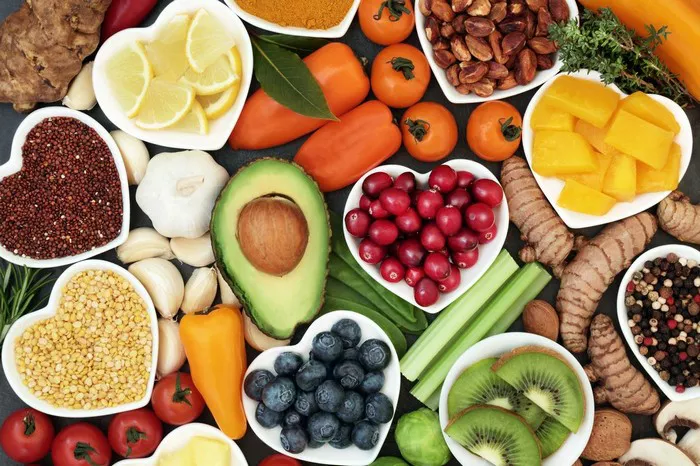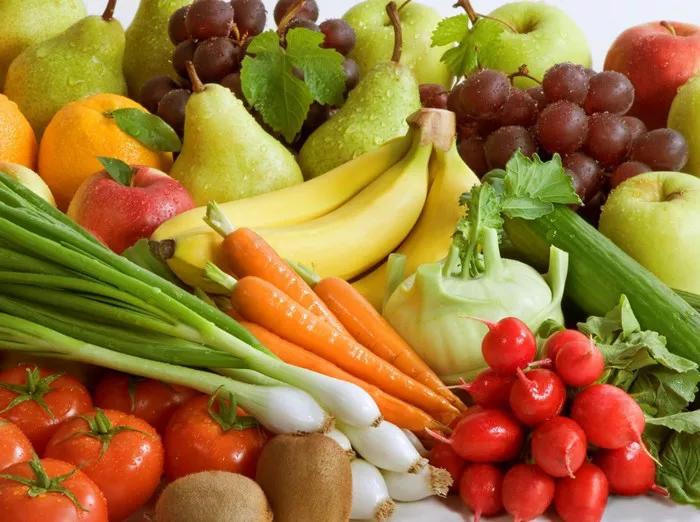Hemorrhoids, also known as piles, are swollen veins in the rectal and anal area that can cause discomfort, pain, and itching. While there are various treatment options available, including lifestyle changes and medication, adopting a healthy diet can play a significant role in managing hemorrhoids and promoting overall digestive health. Certain foods can help soften stools, prevent constipation, and reduce the strain on the rectal area. In this article, we will explore dietary recommendations and highlight the foods that can aid in managing hemorrhoids effectively.
Importance of Fiber for Hemorrhoids
Dietary fiber is crucial for maintaining regular bowel movements and preventing constipation, which is a common cause of hemorrhoids. Fiber adds bulk to the stool, making it easier to pass and reducing the need for straining during bowel movements. It also helps soften the stool, reducing the risk of further irritation to the hemorrhoids. It is recommended to gradually increase your fiber intake and drink plenty of water to avoid potential digestive discomfort.
1. Increase Fruit Intake:
Fruits are an excellent source of fiber, vitamins, and antioxidants. They also contain natural sugars that can help regulate bowel movements. Include a variety of fresh fruits in your diet, such as apples, pears, berries, prunes, and kiwi. These fruits provide soluble fiber, which adds bulk to the stool and promotes regular bowel movements.
2. Embrace Vegetables:
Vegetables are rich in fiber, vitamins, and minerals, making them essential for a healthy diet, especially for individuals with hemorrhoids. Leafy greens like spinach, kale, and Swiss chard are high in fiber and promote healthy digestion. Other fiber-rich vegetables include broccoli, Brussels sprouts, carrots, and sweet potatoes. Aim to incorporate a variety of vegetables into your meals, whether raw, steamed, or roasted.
3. Whole Grains for Fiber:
Whole grains are an excellent source of fiber and should be a staple in a hemorrhoid-friendly diet. Opt for whole grain varieties of bread, pasta, rice, and cereals. Include options like whole wheat, brown rice, quinoa, oats, and barley. These grains retain their fiber content, promoting regular bowel movements and preventing constipation.
4. Legumes and Beans:
Legumes and beans are rich in fiber and offer a host of other health benefits. Incorporate kidney beans, black beans, chickpeas, lentils, and split peas into your diet. These plant-based proteins provide a good source of fiber and promote digestive health. Consider adding them to soups, salads, or as a side dish.
5. Chia Seeds and Flaxseeds:
Chia seeds and flaxseeds are tiny powerhouses of nutrition that are packed with fiber, omega-3 fatty acids, and antioxidants. These seeds can be easily incorporated into your diet by adding them to smoothies, yogurt, or oatmeal. They provide soluble fiber that helps soften stools and aids in regular bowel movements.
Hydration for Soft Stools
Staying well-hydrated is essential for preventing constipation and maintaining soft stools. Adequate hydration ensures that the digestive system functions properly and helps prevent hard, dry stools that can worsen hemorrhoid symptoms.
1. Water:
Water is the best beverage for maintaining hydration. Aim to drink at least eight glasses (64 ounces) of water per day. Sip water throughout the day and listen to your body’s thirst cues. Staying hydrated promotes smooth digestion and helps soften stools, reducing strain during bowel movements.
2. Herbal Teas:
Herbal teas, such as chamomile, peppermint, and ginger, can have soothing effects on the digestive system. These teas are hydrating and can help alleviate symptoms associated with hemorrhoids. Enjoy them warm or chilled, without adding excessive amounts of sugar or caffeine.
Other Considerations for Hemorrhoid Management
In addition to fiber-rich foods and hydration, there are other dietary considerations to keep in mind when managing hemorrhoids.
1. Limit Processed Foods:
Processed foods are often low in fiber and can contribute to constipation. Avoid or limit the intake of processed snacks, fast food, sugary desserts, and refined grains. These foods can be low in nutritional value and may exacerbate hemorrhoid symptoms.
2. Moderate Caffeine and Alcohol:
Caffeine and alcohol can have a dehydrating effect on the body, which can contribute to constipation. Limit the intake of caffeinated beverages like coffee, tea, and soda. When consuming alcohol, do so in moderation and ensure adequate hydration alongside it.
3. Avoid Spicy Foods:
Spicy foods can irritate the digestive system and potentially worsen hemorrhoid symptoms. Limit or avoid spicy foods if you find that they exacerbate your condition.
4. Practice Portion Control:
Maintaining a healthy weight through portion control is essential for managing hemorrhoids. Excess weight can put additional pressure on the rectal area, leading to increased discomfort. Eat balanced meals and practice mindful eating to avoid overeating.
Conclusion
When managing hemorrhoids, adopting a healthy diet is a crucial aspect of treatment and prevention. Incorporating high-fiber foods such as fruits, vegetables, whole grains, legumes, and seeds can promote regular bowel movements and relieve constipation. Adequate hydration is also essential to maintain soft stools. Additionally, limiting processed foods, moderating caffeine and alcohol intake, and avoiding spicy foods can support your efforts in managing hemorrhoid symptoms effectively. As always, consult with a healthcare professional or a registered dietitian for personalized dietary advice tailored to your specific needs and condition.


























